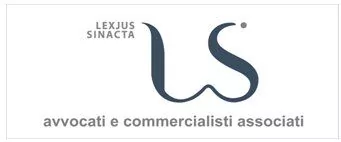Pursuant to an interministerial decree issued by Ministry of Infrastructure and Transport on 29 October 2015, a surtax increase on passenger boarding fees will enter into force in Italy starting from 1st January 2016.
Such a surtax was originally set up with the 2004 Finance law and its amount was equal to Euro 1 per passenger. Following subsequent amendments in the past years the tax has increased and today it amounts to Euro 6,50. From January there will be an increase of Euro 2,50 and the tax will be Euro 8,50 per passenger.
The tax has to be paid by the airlines (domestic flights are excluded), but it is clear that its impact will eventually land on the shoulders of the air travelers who will see an increase in ticket prices. According to the International Air Transport Association a tax increase will have direct effects on future passenger volumes. Indeed it is expected that the surtax increase would reduce the demand of 0,7 %, which means that there would be 414.000 passengers less per year with a consequent reduction of the Gross National Product amounting to Euro 53 millions. Such effects would clearly have negative consequences on the industry of tourism, one of the leading sectors of the Italian economy.
The revenue will be used to finance the Special Fund established for the welfare of air transport workers (such as those involved in Alitalia crisis). The airport service operators will have to collect the levy from the airlines and then they will have to turn it to the Italian National Social Security Institute (INPS).
It has to be remarked that formerly in 2004 the aforesaid surtax – bearing in mind it amounted to Euro 1 only – was introduced in order to finance municipalities in dealing with costs related to house an airport, such as road traffic management and special security matters (considering that the surtax was introduced in the period after the tragic events of 9/11). Over the years the sum has considerably increased, leading to the amount of Euro 8,5 (even Euro 9,50 for Rome airports in order to deal with its specific needs).
The original ratio legis of the surtax was worthy of protection, but now the sums being requested fall outside the proper purpose of a surtax on passenger boarding fees. Indeed it is not conceivable that air passengers have to pay such a high amount in order to support the welfare of air transport workers. The levy is still – at least formally – a municipal tax, therefore it should pursue municipal-related matters such as security and infrastructures management cost.
Furthermore, such a surtax may raise some doubts concerning its legitimacy as it could constitute a public aid, as it would support the welfare for those involved in Alitalia crisis, breaching then article 107 of the Treaty on the Functioning of the European Union concerning the prohibition of aids granted by States. EasyJet Airline has already declared that it will take legal action against the surtax. We will soon see how things develop.
The content of this article is intended to provide a general guide to the subject matter. Specialist advice should be sought about your specific circumstances.


